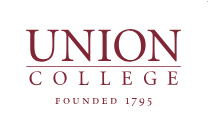Chicago Manual of Style
Citation styles are developed by professional organizations to standardize the way they credit sources in scholarship of their respective fields. While different citations styles often include the same information about their sources (e.g., author, title, publication year), you will notice that the bibliography format and internal citation method differ from citation style to citation style. Some common citation styles include APA (American Psychological Association), MLA (Modern Language Association), and Chicago (University of Chicago Press).
For this class, you are expected to use the Chicago Style, which includes a bibliography of all sources at the end of your paper and footnotes/endnote citations. The information you include and the format you use depends on the type of source it is; for example, you'll notice different information if often included for books, articles, and songs. The Chicago Manual of Style, which documents the citation norms and formats, is updated regularly to add emerging (often digital) forms of scholarship. The Chicago Manual of Style is currently in it's 17th edition!
Citation Resources
Your reader should always be able to locate the resource and information you cite by using your citations, and following the The Chicago Manual of Style is important to ensure you include the correct information for your sources in the order your reader expects. When crafting your citations, the following resources will be helpful guides.
-
Chicago Manual of Style This link opens in a new window
The digital version of the style guide for covering grammar, usage, and formatting. Comes with both the 17th and 16th edition of the guide. Also contains a citation quick guide and a Q&A section.
- The Schaffer Library Citation Guide includes information on why and how to cite. It also links to a variety of citation resources for the most popular citation styles.
- The Purdue Online Writing Lab (OWL) offers useful format guides and citation examples for the most popular citation styles, including Chicago.
A Note on Plagerism
Proper citing is vital to avoid plagiarism and academic dishonestly, and you must cite properly any sources that you quote directly, paraphrase, or summarize. If you aren't sure if something needs to be cited, ask! Your professor or a librarian can help you determine what and how to cite the resources you use.
You signed Union College's Honor Code, agreeing to uphold Union College's academic integrity and disavow academic dishonestly. According to Union College's Honor Code, academic dishonesty can include, but is not limited to: plagiarism, cheating, falsification of data or evidence, dual submission, and collusion. See the Honor Code website for the full text.

